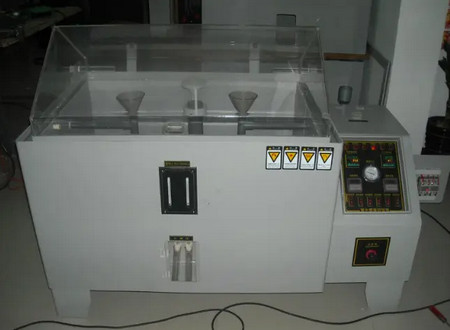What is the salt spray test for galvanizing?
The salt spray test for galvanizing is a specific type of salt spray test conducted to evaluate the corrosion resistance of galvanized coatings on steel. Galvanizing is a process of applying a protective layer of zinc to steel surfaces to prevent corrosion.
The purpose of the salt spray test for galvanizing is to assess the ability of the galvanized coating to withstand corrosion in a salt-laden environment, simulating conditions that the galvanized steel may encounter in real-world applications, particularly in coastal or industrial areas.
The test involves exposing the galvanized steel samples to a continuous or intermittent salt spray of a specified concentration. The salt spray solution typically consists of a 5% sodium chloride (NaCl) solution. The samples are evenly coated with the salt spray solution and then placed in a salt spray chamber. The chamber maintains a controlled environment with a specific temperature and humidity.

During the test, the samples are subjected to a continuous or periodic salt spray for a predetermined duration, typically ranging from 48 to 1000 hours. The test duration may vary depending on the intended application and the specific requirements or standards being followed.
After exposure, the samples are inspected to assess the level of corrosion. The evaluation may include measuring the extent of corrosion, appearance of rust spots, blistering, or other forms of coating degradation. The testing criteria may vary depending on the applicable standards or specifications.
The salt spray test for galvanizing provides valuable information on the performance and durability of the galvanized coating. It helps to validate the quality of galvanized products and ensures that they meet the required corrosion resistance standards. The test results assist in selecting appropriate galvanized coatings for specific applications and provide insights into the expected service life of the galvanized steel in corrosive environments.

